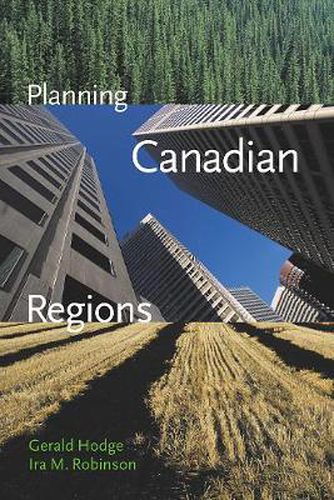Readings Newsletter
Become a Readings Member to make your shopping experience even easier.
Sign in or sign up for free!
You’re not far away from qualifying for FREE standard shipping within Australia
You’ve qualified for FREE standard shipping within Australia
The cart is loading…






Planning Canadian Regions is the first book to consolidate the history, evolution, current practice, and future prospects for regional planning in Canada. As planners grapple with challenges wrought by globalization, the evolution of massive new city- regions, and the pressures for sustainable and community economic development, a deeper understanding of Canada’s approaches is invaluable. Hodge and Robinson identify the intellectual and conceptual foundations of regional planning and review the history and main modes of regional planning for rural regions, economic development regions, resource development regions, and metropolitan and city-regions. They draw lessons from Canada’s past experience and conclude by proposing a new paradigm addressing the needs of regional planning now and in the future, emphasizing regional governance, greater inclusiveness, and integration of physical planning with planning for economic sustainability and natural ecosystems. Planning Canadian Regions will be a much-needed text for students and teachers of regional planning, and an indispensable reference for planning practitioners. It will also find a receptive audience in such disciplines as urban planning, environmental studies, geography, political science, public administration, and economics.
$9.00 standard shipping within Australia
FREE standard shipping within Australia for orders over $100.00
Express & International shipping calculated at checkout
Planning Canadian Regions is the first book to consolidate the history, evolution, current practice, and future prospects for regional planning in Canada. As planners grapple with challenges wrought by globalization, the evolution of massive new city- regions, and the pressures for sustainable and community economic development, a deeper understanding of Canada’s approaches is invaluable. Hodge and Robinson identify the intellectual and conceptual foundations of regional planning and review the history and main modes of regional planning for rural regions, economic development regions, resource development regions, and metropolitan and city-regions. They draw lessons from Canada’s past experience and conclude by proposing a new paradigm addressing the needs of regional planning now and in the future, emphasizing regional governance, greater inclusiveness, and integration of physical planning with planning for economic sustainability and natural ecosystems. Planning Canadian Regions will be a much-needed text for students and teachers of regional planning, and an indispensable reference for planning practitioners. It will also find a receptive audience in such disciplines as urban planning, environmental studies, geography, political science, public administration, and economics.